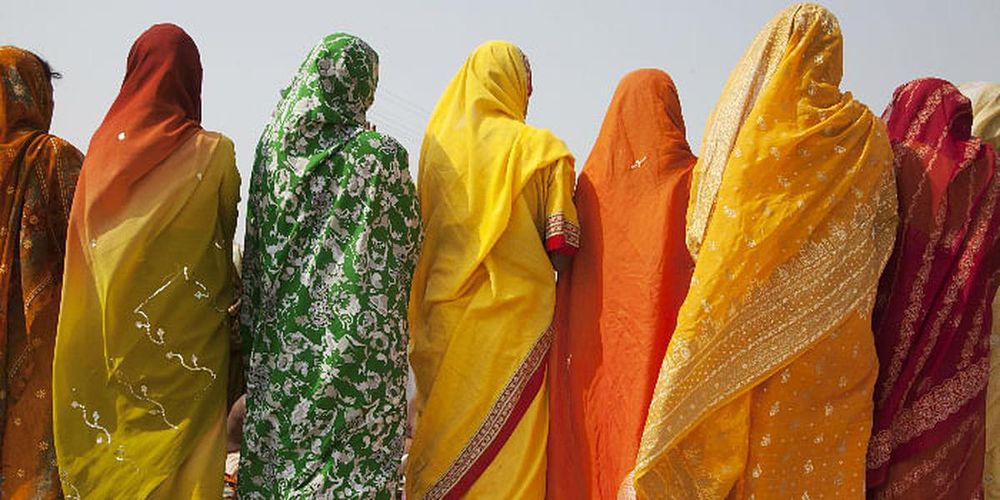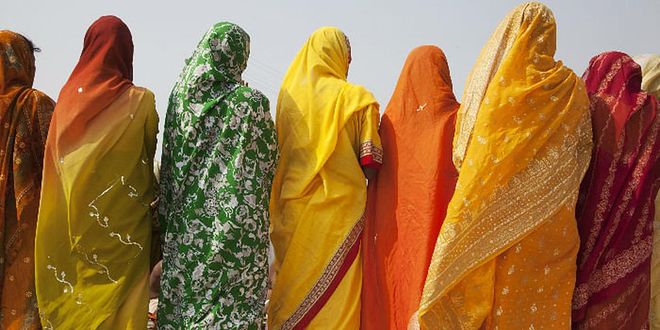Singapore Writers Festival Exclusive: A Cotton Sari by Pooja Nansi
We've collaborated with some of Singapore's brightest writing talents on a series of short stories to celebrate the annual event


Photo: Getty
The Singapore Writers Festival (SWF) returns for its 21st edition this Friday, 2 November, with its theme centred around the Chinese character referring to the different world(s) we live in - 界 (jiè). Over 10 days, local literary luminaries will be joined by critically-acclaimed writers, thinkers and performers from across the world, as they convene on our shores to participate in book launches, meet-the-author sessions, panel discussions, masterclasses, literary tours and more.
Harper's BAZAAR's pages have long lent themselves to words and poetry by some of the world's greatest writers, having published contributions from Virginia Woolf, Truman Capote, Jeanette Winterson and more. Continuing with tradition, Harper's BAZAAR Singapore has collaborated exclusively with SWF on a series of short stories: Our brief to the writers? How a piece of clothing or heirloom has had an impact on you and the world(s) you live in.

Photo: Singapore Writers Festival
First up, Pooja Nansi. A familiar face in the Singapore literary scene, Nansi has published two poetry collections, Stiletto Scars and Love is an Empty Barstool, and was a recipient of the Young Artist Award in 2016. This year, she will be moderating Str8 Up: Word On The Street, a performance highlighting the connection between hip-hop and poetry, before she takes over the reins of SWF come 2019.
A COTTON SARI
by Pooja Nansi
Ask anyone in my family and they will tell you my grandmother’s collection of saris was nothing short of epic. She lived all her married life in an apartment no bigger than 600 square feet. This was also where she miraculously found storage space for the hundreds of saris she painstakingly collected from her travels around India. She knew which handlooms to seek out in which state, what thread count mattered in embroidery.
For much of my life, I never saw my grandmother in anything but a sari. Visiting her in Bombay during my school holidays, I marveled at how it took her under five minutes to drape six yards of material impeccably on her frame. Saris were what she wore when she supported the family by going to work for decades as a teacher, her pallu never getting in the way when chasing after my father as a young boy or when she cooked her famous meals for an entire close-knit extended family.
Towards the end of her life, suffering from dementia and bedridden, one arm immobile, she was relegated to a loose nightgown that sometimes rode up her legs exposing a frailty I never knew she possessed.
When my mother cleaned out her cupboards after her death, I asked for one or two saris that my grandmother would have worn every day. My mother wondered why I didn’t want the occasion silks or the treasured Kanjivarams but I wanted the soft cotton saris that were evidence of the life she lived. I wanted the stains and scents that were witness to her love, that smelt of the turmeric she used in her curries, of vermilion used in morning prayers, of the wrinkles that come holding granddaughters on her lap.
I found myself comforted from the fabric—so soft, so worn, that had caressed my grandmother’s skin, embodied her independence, allowed her practicality and comfort and freedom. I was reminded that her palms had pleated the folds of this fabric day after day.
I believe that we inherit paths that women before us have walked. I believe that every imperfection only adds more worth to an heirloom. And mostly, I believe that the humblest acts of love are our most precious legacies.
Related articles:
15 Local Brands To Support At The Boutique Fairs 2018
5 Of The Most Extravagant Bollywood Costumes Ever
Charlize Theron Speaks Out On The Judgement Of Women